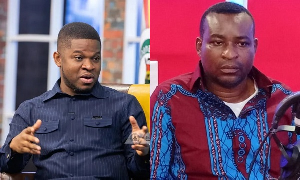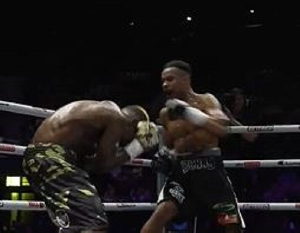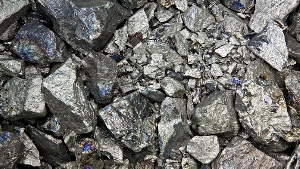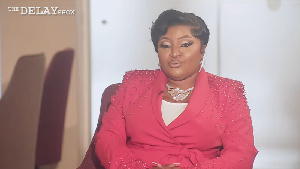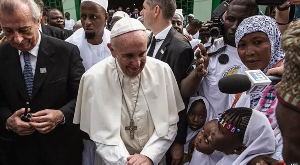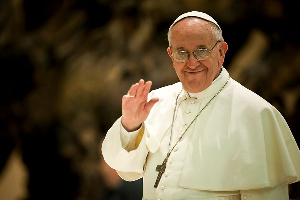Finally it seems to have happened. The so-called unity of the private (print) media in Ghana has buckled under, not through the imposition of "heavy fines" or "jail sentences" or better still, the execution of judgment under the notorious section 185 of the criminal code that like a tapeworm, ate at the heart of free speech in Ghana. It took one small rumour, a number of accusations, denials, counter-accusations, hob-knobbing from one radio station to the other, blatant insults and character assassination to undo that united front which the years of gloom (from a media standpoint) had ironically bequeathed unto the Ghanaian media as a whole and the private press in particular.
But should this be a surprise at all? Many are those who always believed that underpinning the perceived unity of the private press, depending on which side of the political divide one stood, there always was a latent tension due to ideological differences and personal animosities that sought pride of place in the inevitable "who is who" contest for dominance. Make no mistake, dear reader, because at a certain time in our beloved country, it became indeed fashionable for individuals to list on their CVs such weird qualifications as "prison graduates", "most imprisoned journalist" and "most persecuted editor" etc. The bearers of these titles jostled for what was left for a semblance of authority as far as confronting the wielders of political power went and in so doing, created masses of followers and archenemies alike.
The one thing that stood out however was the pooling of resources and the united effort to push for the repeal of the aforementioned section 185 irrespective of differences within the media fraternity, so much so that even 'against people' in the more stable state owned media houses overtly or covertly threw their weights behind that ideal. It was just a matter of time for the goal to be achieved. Having promised to do away with the draconian law, the opposition NPP (as it then was) moved swiftly to consolidate its rather cozy relationship with the private media by repealing it once and for all; what better way to reward those whose immense contribution had negated the probability of another "plan zero" and thus a third successive loss in the NPP's quest to control the levers of power in Ghana?
In so doing however, the ruling NPP might have unleashed forces waiting on the wings to create animosity and revive the latent fears, mistrusts and suspicions that had been simmering all through the period of agitation. It would be a fallacy for anyone to assume that the media, during its periods of uncertainty was one united front with monolithic attributes. Contrary to what some ex-ministers perceived to be 'consistent meetings to strategize and plan weekly stories of defamation and character assassination' among editors of the private media, the so-called editors did enjoy fraternity alright but underneath it all were fears of betrayal and suspicion about the true intention of their colleagues in joining the newspaper business in the first place. Why? Because as early as the appearance of the first truly independent papers, some editors had been rumoured 'authoritatively' as demandin! g bribes to bury some stories while others were out just to seek an improvement in their rather dismal lifestyle. Notwithstanding these, the most dangerous recipe for disaster was the ideological orientation of these gangs of editors, for, in order to thwart the perceived machinations of the ruling NDC, newspapers with Capitalist orientations had to synchronize their efforts with those of Marxist nomenclature which in the short term was bound to be successful. United we stand could not have been more appropriate as a dictum considering the exigencies of the time.
It must have been the repeal of the criminal libel law that severed the relations enjoyed by the different orientations because in breathing the biggest sigh of relief, the bonds of camaraderie ruptured for each to go his own way and to revert to the execution of the real plan for which those businesses were set up in the first place. Just as sour grapes push divorcees to unprintable extremes, so also did the purveyors of conflict move into action albeit gradually. Having known the operations of colleagues and their tendencies to extort, blackmail, cajole and bootlick to make ends meet, those who felt a 'higher calling' must have been induced to clear their own Aegean stables if they were to be successful in calling the politicians to order. In other words, house cleaning had come full swing to the domain of the private press, reason for which 'bad-nuts' had to be exposed. After all if ! the judiciary is undergoing internal cleaning, what right has the media to insulate itself from public scrutiny in order to weed out unwanted elements. So who at all are the bad nuts? Are they those who have remained resolute in their resolution to criticize governments of any kind irrespective of their political orientation and their changed socio-political circumstances? Are they those who pandered to the whims and caprices of self-appointed demigods now dislodged from their entrenched positions of power and who seek to cover their tracks with what is left of a pliable and sympathetic section of the private media? Are they those who killed stories and programs just because of a single phone call from the 'powers that be'? Could they be the ones whose party has come to power and therefore like Shylock must extract their pound of flesh for the suffering they underwent by imposing their brand of justice on their oppressors and their accomplices? What about those who are now ! afraid of losing their otherwise secure jobs and columns in certain pa pers with which they spewed better-to-forget verbiage into the public domain?
Much as some would be patting the backs of others with a sense of accomplishment and others going about their duties with glee at what is happening to the private media, it is important to note that a degeneration beyond what prevails presently on the media front would do no good to the media in general and Ghana in particular. Is it not a little over a year ago that the international community was full of adulations for the Ghanaian media's role in the 2000 elections despite the scanty logistics available? The fortunes of Ghana cannot be changed for the better only by the infusion of FDIs but more significantly, if we talk about a stable or enabling environment, it must include the media, which take it or leave it, includes a well organized and decent private media. This tendency to point accusing fingers, spread rumours, disseminate deliberate falsehoods and Robin Hood-like gallivanti! ng to debunk or confirm rumour is only serving the purposes of those who failed to use organized and legitimate means to cower the media into submission and subservience. The extent to which they shall succeed depends on the agreement of the various components making up the private media to disagree without besmirching reputations and impugning scandalous motives for misunderstood actions. It certainly entails some internal soul-searching too as to what role each and every facet in the establishment must play in the national interest.
Ghana Cyber Group
Washington DC

Views expressed by the author(s) do not necessarily reflect those of Ghanaweb.


